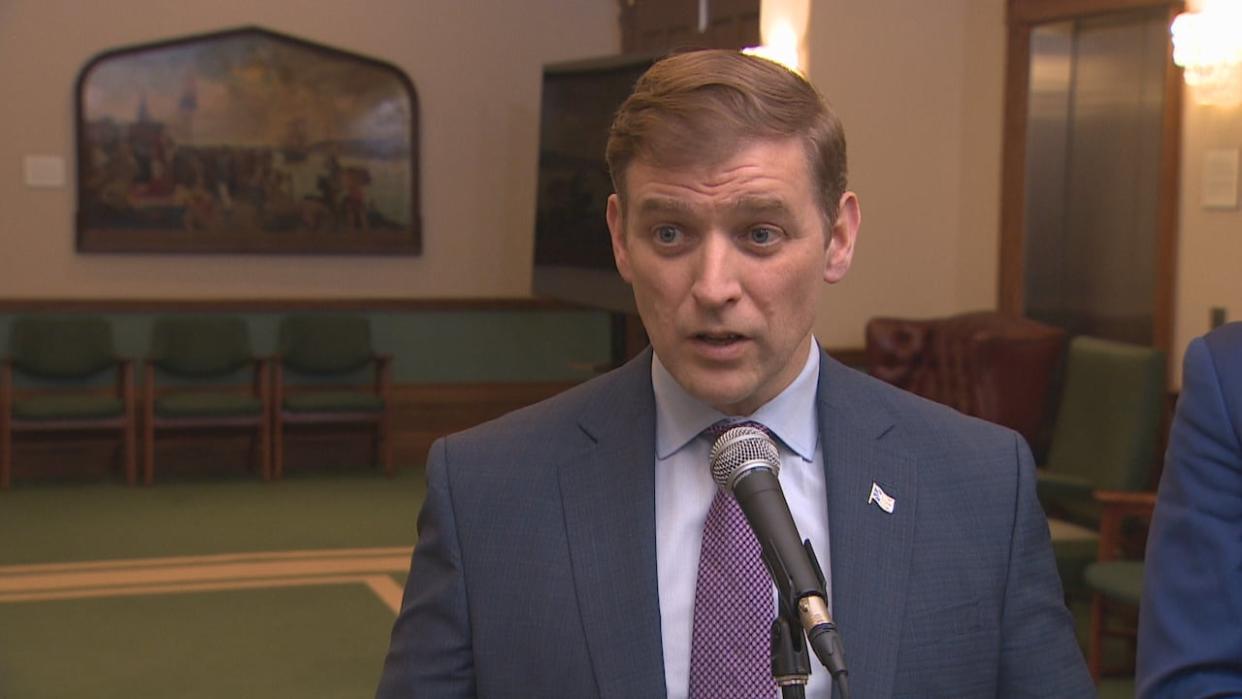Furey asks Trudeau to halt carbon tax increase, citing few options for consumers in N.L.


Premier Andrew Furey said the carbon tax doesn't incentivize people to switch to renewable energy because the infrastructure to make that shift possible isn't yet established in Newfoundland and Labrador. (Ted Dillon/CBC)
Premier Andrew Furey shared an open letter Tuesday addressed to the prime minister, asking him to pause an upcoming increase to the carbon tax until inflation stabilizes.
Furey wrote the Newfoundland and Labrador government is "deeply invested in environmental sustainability," but says the tax increase of almost 25 per cent, slated for April 1, will add to residents' financial burdens.
This isn't the first time Furey has asked for the tax to be removed or frozen. He says he doesn't think the tax is the right way to encourage people to choose renewable energy options.
"The issue for this particular tax is there are limited options to change right now in Newfoundland and Labrador," he said.
The tax is meant to incentivize people to shift from carbon-based to renewable energy options, but Furey argues the province doesn't have the right infrastructure to support that change, such as having limited options for electric vehicles.
"In the absence of the ability to change, what does the tax really accomplish?" Furey told reporters Tuesday afternoon.
Other provinces don't have the carbon tax and employ different approaches, he said, adding that the provincial government has indicated its openness to using other strategies that "don't punish people."
Jesse Bartsoff, a spokesperson for the deputy prime minister's office, says the tax will benefit Canadians and will account for nearly one-third of Canada's emissions reductions by 2030.
Furey is the seventh premier calling on Trudeau to halt the increase, joining premiers in New Brunswick, Prince Edward Island, Saskatchewan, Alberta, Ontario and Nova Scotia.
Nova Scotia Premier Tim Houston also sent Trudeau a letter on Tuesday, calling the increase "unfair and misguided."
What to do instead
The carbon tax is meant as a means of encouraging people away from using fossil fuels.
The amount you're taxed depends on the fuel source you use — the more emissions it produces, the more you'll pay. The carbon tax on home heating oil, for instance, works out to $0.1738 per litre, regardless of the cost of oil.
While Furey is rejecting the tax as a policy, he says he's not against its intention. "That's not suggesting that there's not an environmental imperative or that we don't have a role to play in climate change," he said.
Furey's solution is to focus on working with industries, like the offshore petroleum industry in the province, to reduce their carbon emissions, and using government revenue to build the electric infrastructure required to move away from oil and gas sources.
In his letter, Furey didn't ask to completely remove the tax but to halt its increase to when the economy is more stable and incomes have caught up to the rising cost of living.
"While we have seen some reduction of inflation, we haven't seen a cut in the interest rates and we haven't really had time in the economy to breathe in the stabilization of inflation," he told reporters.
"So I'd like to see all of those things happen. But more important though that would like to see the options available for people to change."
Download our free CBC News app to sign up for push alerts for CBC Newfoundland and Labrador. Click here to visit our landing page.


